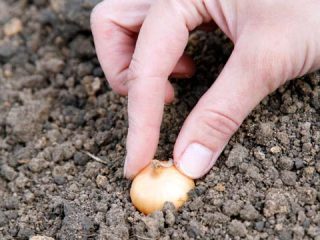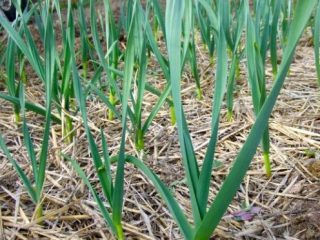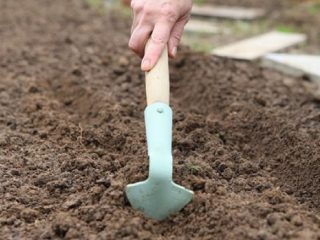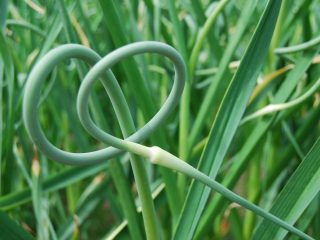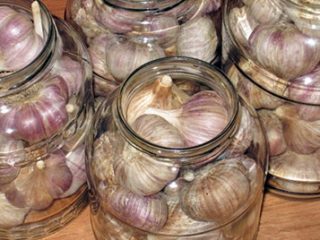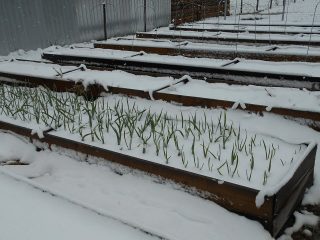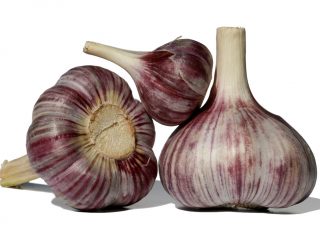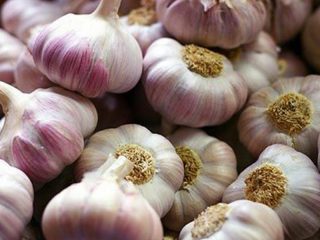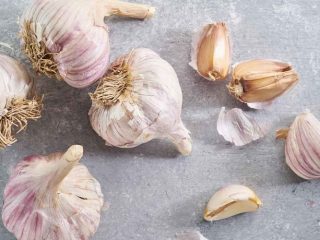Content
- 1 When can you plant spring garlic in open ground in the spring?
- 2 Is it possible to plant sprouted spring garlic?
- 3 Growing and caring for spring garlic
- 3.1 How to germinate spring garlic before planting
- 3.2 What to soak in and how to prepare spring garlic for planting in spring
- 3.3 Where is the best place to plant garlic?
- 3.4 Preparing the soil for planting spring garlic
- 3.5 At what distance and at what depth should spring garlic be planted?
- 3.6 How to plant spring garlic correctly in spring
- 4 Is it possible to plant spring garlic in the fall before winter?
- 5 Secrets of growing spring garlic
- 6 Conclusion
Spring garlic is planted in open ground in the spring towards the end of April or early May. By this time the soil should warm up to 3–5 °C. However, there is no need to delay the process, since garlic prefers to grow in cool conditions.
When can you plant spring garlic in open ground in the spring?
Spring garlic ripens much faster than winter garlic, so it is planted in the spring. Main criteria:
- The snow has completely melted and the soil has thawed.
- The top layer of soil has had time to dry, which is easy to determine on your own. You need to take a lump, squeeze it and throw it from a small height - the earth should crumble into small fragments.
- The main guideline is that the soil should have time to warm up to a temperature of 3–5 °C.
It is worth keeping in mind that the root system of spring garlic develops at low temperatures (5–10 °C), so there is no need to delay planting it.
The plant must have time to take root and produce not only roots, but also the first leaves - this directly affects the size of the bulb, i.e., the yield. Typically, a suitable temperature regime is observed already in mid-April. Specific planting dates are determined by the climatic characteristics of the region.
When to plant spring garlic in the Urals
Spring garlic is sown in the Urals in the last month of spring. The soil and air have time to warm up to an acceptable temperature only by mid-May. If April was relatively warm, for 10 days in a row the daytime temperature remained at +14–15 °C and above, then planting can be done earlier - in early May.
When to plant spring garlic in Siberia
In Siberia, spring garlic cloves should also be planted in late spring. Usually the dates are slightly shifted (compared to the Urals) and fall in the second half of May. If April was relatively warm, the procedure can be started after the May holidays, in the second ten days of the month.
Dates for planting spring garlic in the spring in the Moscow region
In the Moscow region, climatic conditions are slightly milder. And although return frosts are not excluded, you should not be afraid of this: the plant is not afraid of short-term cooling down to 1–3 °C in the soil. The optimal time for planting spring garlic is the second half of April. Sometimes the deadline is pushed back to the beginning of May. To ensure readiness, you need to measure the soil temperature with a thermometer.
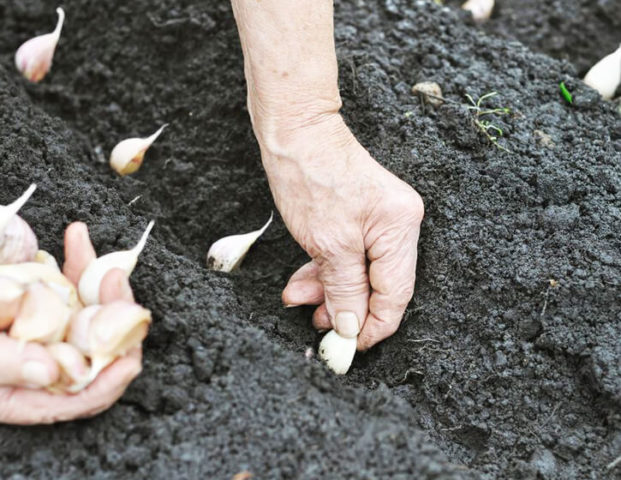
The right time for planting spring garlic in the Moscow region and the middle zone is the second half of April
Dates for planting spring garlic in the middle zone, Leningrad region
The time for planting spring garlic in the middle zone is the same as in the Moscow region, i.e. the third ten days of April or the beginning of May. As for the Leningrad region and other regions of North-West Russia, the dates here are later, closer to the Urals. The soil manages to warm up to the required temperature by the last days of April, although it often happens that you have to wait until the first ten days of May.
Planting dates according to the lunar calendar
When planting spring garlic, summer residents pay attention to the lunar calendar. It is advisable to plant all root crops on the waning moon. Full moon and new moon days are traditionally considered unfavorable. If you cannot schedule the procedure for a specific day, you need to take into account these rules for planting spring garlic.
Is it possible to plant sprouted spring garlic?
If the garlic has sprouted, you can still plant it.But not in open ground (even if the temperature is optimal), but in an ordinary flower pot or any containers for seedlings - individual cups, common boxes or containers. The sequence of actions is as follows:
- Carefully cut off the dry roots, trying not to damage the bottom itself.
- Spring garlic bulbs are divided into cloves, only some of them need to be planted, while the others (rotten and dried) should be discarded.
- Immerse healthy material in a weak (pink) solution of potassium permanganate 0.7–0.8% for 3–4 hours.
- Planted in a shallow container with fertile soil (layer 2–3 cm) so that the cloves fit snugly against each other.
- Water thoroughly 2-3 times a week. Grow at room temperature.
Two weeks after planting, green shoots of spring garlic will appear. They are very tender, tasty and healthy, because they contain vitamins A, C, group B, phytoncides, and organic acids.
The mixture is placed in a jar with a lid and stored in the refrigerator for several months.
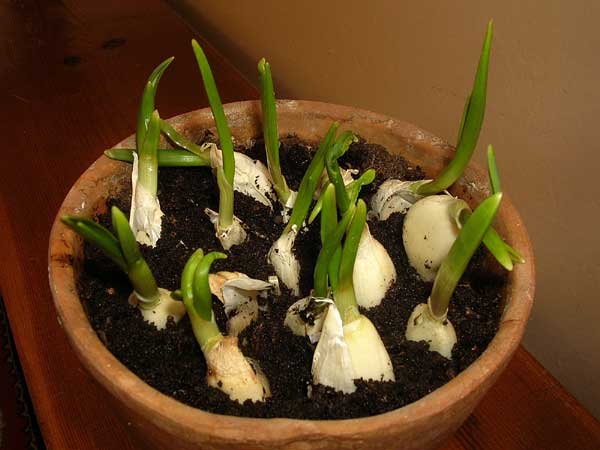
Sprouted garlic that produces green arrows is best grown at home
Growing and caring for spring garlic
Caring for this crop is easy. It is only important to treat spring garlic before planting in the spring, and also to ensure spacing between neighboring plants. Before starting work, the seed must be divided into cloves, while:
- it is better to choose them from the first (outer) row;
- too small ones must be rejected;
- remove dried and rotten ones;
- remove the fused ones. They have obvious signs of degeneration, so such cloves will not produce a good harvest.
How to germinate spring garlic before planting
Pre-planting material of spring garlic needs to be germinated a little, obtaining small roots 2 cm in size. To do this, it is enough to soak it first in potassium permanganate for several hours, and then in a growth stimulator for 30–40 minutes. After this, the teeth are wrapped in gauze and put in the refrigerator. The roots begin to grow from the first days, and they reach the desired length in just a week.
What to soak in and how to prepare spring garlic for planting in spring
Preparing spring garlic for planting in the spring necessarily includes soaking. It takes place in 2 stages:
- First, the selected cloves are kept in a 1% solution of potassium permanganate (light pink) for 3–4 hours. This allows you to disinfect the surface and destroy both harmful fungi and bacteria.
- Also, before planting, spring garlic should be soaked in a growth stimulant, for example, Epin, Kornevin, Zircon, NV-101. If you don’t have these products on hand, you can get fresh aloe juice and dilute it with water in a 1:1 ratio. Leave the planting material for 30–40 minutes.
After this, the solution is drained, and the wet cloves are placed in any natural fabric or gauze, folded in several layers. Wrap and place in a strong bag that does not need to be tied tightly. Then this bundle is sent to the refrigerator (compartment for fruits and vegetables), and on the desired day it is picked up and dropped off. If possible, planting can be done immediately after soaking.
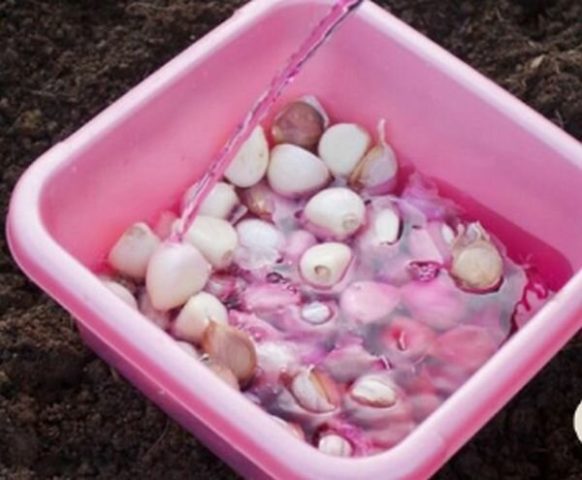
Disinfection of planting material in potassium permanganate is carried out for several hours
Where is the best place to plant garlic?
There are no special requirements for a place to grow spring garlic in the spring. Selecting a suitable site is simple: it must be well lit (without shadows from trees, bushes or buildings) and located on a slight hill. It is not advisable to plant in lowlands where water accumulates. In this case, the bed can be raised a little by digging up the ground or installing additional wooden fences.
If possible, it is better to cultivate the crop in places where legumes, zucchini, pumpkin, oats, strawberries, wild strawberries or cucumbers previously grew.
You should not plant cloves in places where any root vegetables and nightshades were recently placed: tomatoes, potatoes, peppers, eggplant, radishes, carrots, beets, onions and others.
Preparing the soil for planting spring garlic
Garlic prefers fertile, light, loose soil - loam or black soil. It is advisable to prepare the site in the fall. To do this, clean it, dig it up and, if necessary, add 2–3 kg of humus or compost per square meter.
You can also add 200–300 g of wood ash. Fresh manure should not be added, especially in spring. As it ripens, it greatly heats the soil, so the roots of spring garlic can be seriously damaged when planted.
At what distance and at what depth should spring garlic be planted?
The scheme for planting spring garlic in open ground differs in that the cloves are placed 2 times closer than those of winter garlic.The fact is that the bulbs of the “summer” variety are much smaller, so space can be saved.
When planting you should observe:
- the interval between adjacent holes is 4–6 cm;
- depth - no more than 2-3 cm.
Experienced summer residents take measurements by eye. Beginners can be advised to define depth as the width of two fingers placed together. The interval between landings approximately corresponds to the length of the little finger.
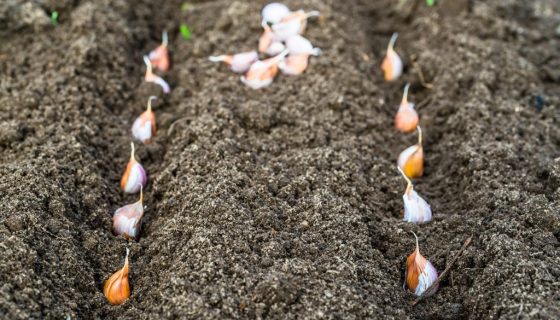
Classic planting pattern – 5 cm between adjacent teeth
How to plant spring garlic correctly in spring
After you have managed to properly prepare spring garlic for planting in the spring, you can begin the main procedure. The sequence of actions is as follows:
- Several furrows are made in the prepared bed at intervals of 25–30 cm.
- Vermicompost or complex fertilizer granules are placed in each of them (if fertilizing was not applied in advance).
- Plant the cloves in the ground, deepening them to 2–3 cm.
- Water with settled water and mulch with sawdust and wood chips. This layer will allow the soil to remain moist much longer and will also inhibit the growth of weeds.
Is it possible to plant spring garlic in the fall before winter?
Spring garlic can also be planted before winter. In this case, the growing season will increase, and the heads will be much larger (from 70–80 to 100 g). The optimal time is the end of September. In the south you can do this 1–2 weeks later, and in the Urals and Siberia - 7 days earlier.
Before starting work, spring garlic should be processed in exactly the same way as during classical planting in spring. However, there are two differences:
- The embedment depth will be greater: 5–8 cm instead of 2–3 cm.
- Coarse white sand should be placed at the bottom of the hole. Then insert the cloves. Then fill it with sand again and level it with fertile soil.
Plantings are covered with a large layer of mulch. You can use dry leaves, straw, sawdust and other available materials.
Secrets of growing spring garlic
The agricultural technology for growing spring garlic is not very complicated, but it has its own nuances. Experienced summer residents who receive good harvests of this crop are advised to adhere to the following rules:
- During May and June, give abundant watering (2 times a week), then weekly (if there is no rain). As soon as 5–6 leaves appear, the volume of water is reduced, and at the end of July it is completely stopped.
- Particular attention is paid to loosening. It is carried out 1–2 days after each watering.
- Weeding is also done regularly. There should be no weeds in the bed with spring garlic.
- If the soil has already been fertilized before planting, additional fertilizing is not necessary. If the soil is not very fertile, you can give it once (in May) urea or a complex fertilizer, for example, azofoska.
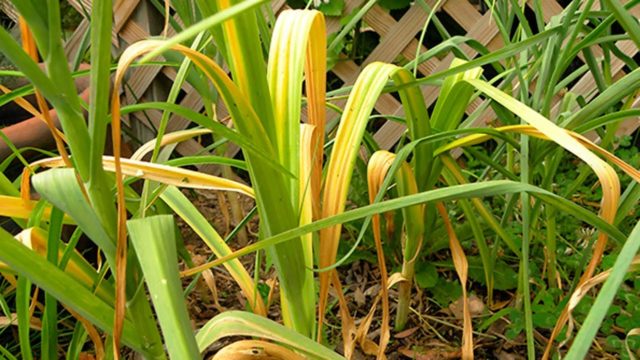
Excessive fertilizing can cause yellowing of leaves.
Conclusion
Planting spring garlic in open ground in the spring is not very difficult. Both measuring the soil temperature and observing other plants will help determine the timing. The algorithm is quite simple: the cloves are deepened by 2–3 cm, leaving a distance of 4–6 cm between them. To learn when and how to plant spring garlic in the spring, you can watch the video.
